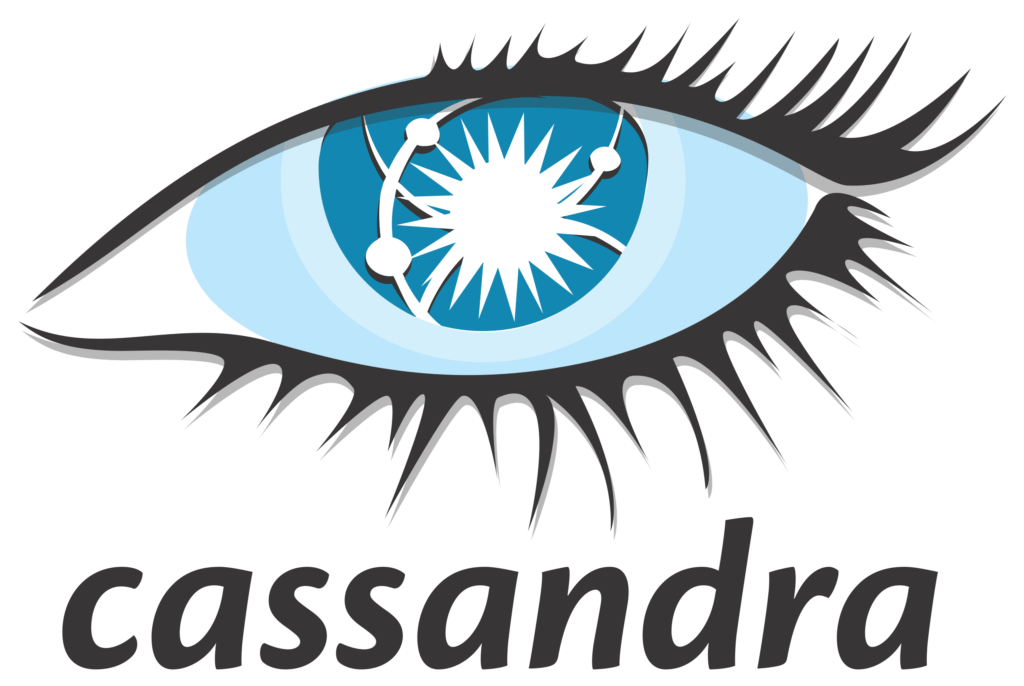According to a recent study by Statista, the number of social media users worldwide is expected to reach 4.41 billion by 2025, highlighting the significant growth and influence of social media platforms.
For developers and businesses looking to create a social media app, choosing the right database is crucial to ensure efficient data management and scalability.
In this context, selecting the best database for a social media app is a critical decision that can impact the app’s performance, user experience, and overall success.
Let’s explore some top database options that are well-suited for social media applications and discuss their key features and advantages.
comparison table among Best Database For Social Media Apps
Here’s a comparison table among MongoDB, MySQL, Firebase Realtime Database, Cassandra, Neo4j, and Microsoft SQL Server:
| Database | Key Features | Scalability | Data Model | Language Support | Rating |
|---|---|---|---|---|---|
| MongoDB | NoSQL document database | Highly scalable | Flexible JSON-like documents | Multiple programming languages | ⭐⭐⭐⭐⭐ |
| MySQL | Relational database management system (RDBMS) | Scalable for small to medium-sized databases | Structured tables and SQL queries | Multiple programming languages | ⭐⭐⭐⭐ |
| Firebase Realtime Database | Real-time cloud-hosted NoSQL database | Scalable for small to medium-sized databases | JSON-like tree structure | JavaScript, Swift, Java, and more | ⭐⭐⭐⭐ |
| Cassandra | Highly scalable distributed NoSQL database | Designed for massive scalability | Wide-column data model | Multiple programming languages | ⭐⭐⭐ |
| Neo4j | Graph database | Scalable for small to medium-sized databases | Graph-based data model | Cypher query language | ⭐⭐⭐⭐⭐ |
| Microsoft SQL Server | Relational database management system (RDBMS) | Scalable for small to large databases | Structured tables and SQL queries | Multiple programming languages | ⭐⭐⭐ |
Note: The ratings are based on general industry perception and may vary depending on specific use cases and requirements. It’s recommended to conduct further research and evaluation to determine the best database for a social media app based on individual needs.
MongoDB
MongoDB is a popular NoSQL database that is widely used for building social media apps.

It offers a flexible and scalable solution for managing large volumes of data and supports the document-oriented data model.
Key Features of MongoDB
Flexible Data Model: MongoDB’s document-oriented data model allows for the storage of diverse and dynamic data structures. It supports nested documents and arrays, providing flexibility in data modeling.
Scalability: MongoDB is designed to scale horizontally across multiple servers, making it suitable for handling the growing data demands of social media apps. It can distribute data across clusters to ensure high availability and performance.
High Performance: MongoDB offers efficient to read and writes operations due to its memory-mapped storage engine. It supports indexes and various query optimization techniques, enabling fast retrieval of data.
Automatic Sharding: MongoDB’s built-in sharding feature allows for the distribution of data across multiple machines. This ensures that the database can handle large amounts of data and traffic while maintaining performance.
Real-time Data Updates: MongoDB supports real-time data updates through its change streams feature. This allows developers to build real-time functionality, such as live feeds and notifications, in social media apps.
Schema Flexibility: With MongoDB, there is no rigid schema that needs to be defined upfront. This provides agility in app development, as the schema can evolve over time to accommodate changing requirements.
Rich Query Language: MongoDB provides a powerful query language that supports complex queries, including filtering, sorting, and aggregation. It also supports geospatial queries, making it suitable for location-based features in social media apps.
These key features make MongoDB a compelling choice for developing social media apps, providing the flexibility, scalability, and performance required to handle the dynamic nature and large volumes of data associated with such applications.
MySQL
MySQL is a widely used open-source relational database management system (RDBMS) that is suitable for building social media apps.

It offers a robust and reliable solution for managing structured data and ensuring data integrity.
Key Features of MySQL
Relational Data Model: MySQL follows a traditional relational data model, making it suitable for applications that require well-defined relationships between entities. It supports tables, columns, and rows, enabling efficient storage and retrieval of structured data.
ACID Compliance: MySQL ensures data integrity through ACID (Atomicity, Consistency, Isolation, Durability) compliance. It guarantees that database transactions are processed reliably, protecting the consistency and reliability of the data.
Scalability: MySQL can handle large amounts of data and scale vertically by running on more powerful hardware. It supports replication, allowing for the distribution of data across multiple database servers to enhance performance and availability.
Performance Optimization: MySQL provides various mechanisms to optimize performance, including indexing, query caching, and query optimization. These features help improve the speed and efficiency of data retrieval and manipulation operations.
Security: MySQL offers robust security features to protect the data stored in the database. It supports user authentication, access control, and encryption, ensuring that only authorized users can access and manipulate the data.
Wide Community Support: MySQL has a large and active community of users and developers, providing extensive documentation, tutorials, and support resources. This makes it easier for developers to find help and resources when working with the database.
Compatibility: MySQL is highly compatible with different programming languages and frameworks, making it easier to integrate with social media app development frameworks and libraries.
These key features make MySQL a reliable and widely adopted choice for social media app development. Its relational data model, data integrity features, scalability, and performance optimization capabilities contribute to its suitability for managing structured data in social media applications.
Firebase Realtime Database
Introduction Firebase Realtime Database is a NoSQL cloud-hosted database provided by Google that is well-suited for developing social media apps.

It offers real-time data synchronization and a flexible JSON data structure, making it easy to store and retrieve data in real time.
Key Features of Firebase Realtime Database
Real-time Data Sync: Firebase Realtime Database provides real-time data synchronization, allowing multiple users to access and update data simultaneously. This feature is essential for social media apps where users expect instant updates and interactions.
Flexible Data Model: The database uses a JSON-like data structure, which is flexible and easy to work with. It allows developers to store structured data, such as user profiles, posts, comments, and likes, in a hierarchical format.
Serverless Architecture: Firebase Realtime Database is a serverless database, meaning developers don’t have to worry about managing the infrastructure. The database automatically scales to handle a high volume of concurrent connections and provides reliable performance.
Authentication and Security: Firebase offers built-in authentication mechanisms, including email/password authentication, social login providers (such as Google and Facebook), and custom authentication. This ensures secure access to the database and allows developers to implement user authentication and authorization in their social media apps.
Offline Data Persistence: Firebase Realtime Database supports offline data persistence, allowing the app to continue functioning even when the device is offline. Once the device reconnects to the internet, the database synchronizes the changes made offline with the server.
Scalability: Firebase Realtime Database is designed to scale automatically based on demand. It can handle a high volume of concurrent connections and ensures reliable performance even during peak usage periods.
Integration with Firebase Ecosystem: Firebase Realtime Database seamlessly integrates with other Firebase services, such as Firebase Authentication, Firebase Cloud Messaging (FCM), and Firebase Hosting. This integration simplifies the development process and enables developers to build robust and feature-rich social media apps.
Firebase Realtime Database offers a real-time, scalable, and flexible solution for storing and synchronizing data in social media apps. Its real-time data synchronization, serverless architecture, authentication, and offline data persistence capabilities make it an ideal choice for developers looking to create engaging and interactive social media experiences.
Cassandra
Cassandra is a distributed and highly scalable NoSQL database that is designed for high availability and fault tolerance.

It is widely used in various industries, including social media apps, due to its ability to handle large amounts of data and high read and write throughput.
Key Features of Cassandra
Scalability: Cassandra is known for its ability to scale horizontally, allowing it to handle large datasets and increasing traffic loads. It can distribute data across multiple nodes in a cluster, ensuring high performance and fault tolerance.
High Availability: Cassandra is designed to be highly available, even in the event of node failures. It achieves this through data replication across nodes, ensuring that data remains accessible and consistent.
Column-Oriented Data Model: Cassandra follows a column-oriented data model, which allows for flexible and dynamic data storage. It is well-suited for applications that require fast and efficient read and write-operations on large datasets.
Tunable Consistency: Cassandra offers tunable consistency, allowing developers to configure the level of data consistency based on their application requirements. This flexibility is beneficial for social media apps that may prioritize availability and low latency over strict consistency.
Linear Scalability: As the number of nodes in a Cassandra cluster increases, the system maintains linear scalability, meaning that performance scales linearly with the addition of more nodes. This makes Cassandra an excellent choice for applications with growing user bases and data volumes.
Fault-Tolerant Architecture: Cassandra’s distributed architecture ensures fault tolerance by replicating data across multiple nodes. This redundancy ensures that data remains accessible even if a node or data center experiences failures.
Flexible Data Model: Cassandra’s flexible data model allows for the storage of a wide variety of data types, including structured, semi-structured, and unstructured data. This versatility makes it suitable for storing diverse social media app data, such as user profiles, posts, comments, and media files.
In summary, Cassandra offers impressive scalability, high availability, and fault tolerance, making it a popular choice for social media apps. Its column-oriented data model and tunable consistency provide flexibility, while its fault-tolerant architecture ensures data reliability even in the face of failures.
Neo4j
Neo4j is a graph database that excels in managing relationships between data entities.

It offers a unique approach to data storage and retrieval, making it highly suitable for social media app development.
Key Features of Neo4j
Graph-based Data Model: Neo4j uses a graph-based data model that represents data entities as nodes and relationships between them as edges. This allows for efficient management and traversal of complex networks of interconnected data.
Highly Efficient Relationship Management: Neo4j’s graph-based structure makes it particularly efficient for handling relationship-intensive data, such as social connections, friendships, and follower relationships. Queries that involve traversing relationships are executed quickly, enabling fast and responsive social media app experiences.
Flexible and Expressive Query Language: Neo4j offers a powerful and expressive query language called Cypher. Cypher allows developers to easily retrieve and manipulate data based on graph patterns, making it well-suited for social media apps that often require complex and customized queries.
Scalability and Performance: Neo4j provides horizontal scalability, allowing you to handle growing amounts of data and increasing user loads. It offers high-performance data retrieval even with large datasets and complex relationships, ensuring smooth and responsive user experiences.
Advanced Graph Analytics: Neo4j includes built-in graph analytics capabilities, such as pathfinding algorithms and community detection. These features enable advanced data analysis and insights, making it possible to uncover patterns, identify influencers, and understand the network structure of social media data.
By leveraging Neo4j’s graph database capabilities, social media apps can benefit from efficient relationship management, flexible querying, and powerful graph analytics, ultimately enhancing the overall user experience.
Microsoft SQL Server
Microsoft SQL Server is a comprehensive relational database management system (RDBMS) developed by Microsoft.

It is widely used in various industries for managing and storing structured data.
Key Features of Microsoft SQL Server
Data Management: Microsoft SQL Server provides robust data management capabilities, allowing users to create, modify, and query relational databases efficiently. It supports various data types and offers advanced indexing and storage optimization techniques.
Security and Compliance: SQL Server prioritizes data security and compliance with features like encryption, authentication mechanisms, and fine-grained access control. It helps businesses meet regulatory requirements and safeguard sensitive information.
Scalability and Performance: SQL Server is designed to handle large-scale data and high-performance workloads. It supports parallel processing, distributed query processing, and efficient query optimization techniques to ensure optimal performance.
Business Intelligence and Analytics: SQL Server offers integrated business intelligence and analytics tools, such as SQL Server Analysis Services (SSAS) and SQL Server Reporting Services (SSRS). These features enable users to extract insights, generate reports, and build data-driven solutions.
High Availability and Disaster Recovery: SQL Server provides features like database mirroring, log shipping, and always-on availability groups to ensure high availability and disaster recovery. These features minimize downtime and data loss, ensuring business continuity.
Integration and Connectivity: SQL Server integrates well with other Microsoft products and technologies, such as .NET Framework and Azure cloud services. It also supports various connectivity options, including ODBC, JDBC, and ADO.NET, facilitating seamless integration with different applications.
These key features of Microsoft SQL Server make it a popular choice for social media app development, providing a robust and scalable foundation for managing and analyzing data efficiently.
In conclusion, choosing the right database for a social media app is crucial for ensuring optimal performance, scalability, and data management. While there are several excellent options available, such as MongoDB, MySQL, PostgreSQL, and Microsoft SQL Server, the best database will depend on specific requirements, including the app’s scale, complexity, and data needs.
It is essential to carefully evaluate the features, capabilities, and compatibility of each database to make an informed decision that aligns with the goals of the social media app.


